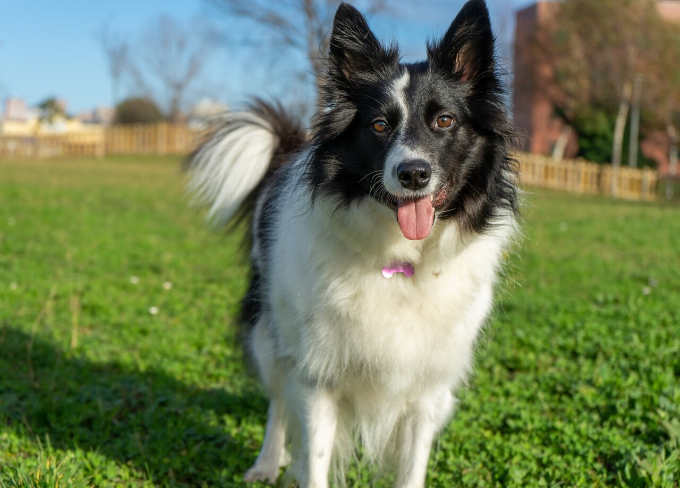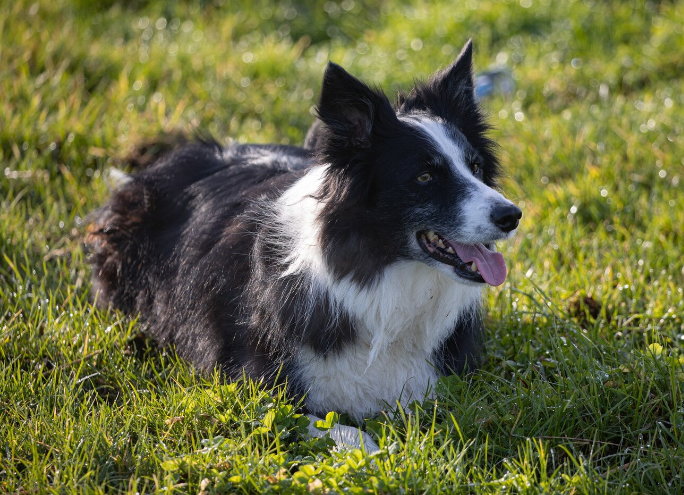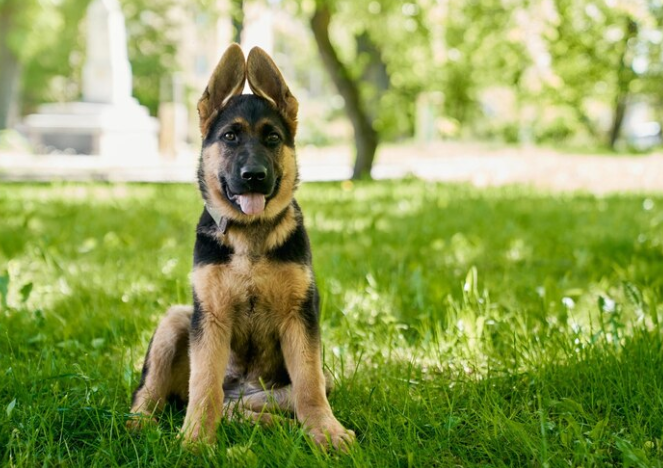
Throughout our lives, we never cease to learn new things that help us understand the world better and teach us to deal with various challenges.
Intelligence is a trait including a wide range of capabilities, whose ultimate goal is to help us navigate through life with confidence and self-awareness.
However, intelligence is a complex trait that plays a significant role not only in our lives but also in the lives of our paw friends. Smart dogs are often favored as pet companions due to their ability to quickly learn tasks and tricks, understand their owners better, and develop strong bonds with them. Of course, their eagerness to learn and explore their surroundings often makes them fun companions to be around!
While being smart apparently has advantages, it also has negative aspects. In the context of dog raising and training, these may include a tendency for the dog to get bored more easily and develop bad habits, stubbornness, and the bane of many owners- selective listening.
If you are looking for a smart dog to be your loyal companion and a potentially reliable service dog in the future, this article may be very helpful!

Advantages of Having a Smart Dog
Trainability
Smart dogs are typically highly trainable, which is much appreciated by their owners! Smart dogs can be taught various tasks and tricks quite easily.
Additionally, high trainability will not only make basic obedience training easier but will also open the door to advanced training, including service dog training. If you are looking for a reliable service dog, you should opt for a dog who is smart and trainable. Otherwise, training may become challenging and require more practice.
Last but not least, training a dog to behave appropriately around people and various distractions in their surroundings is essential for their skills as polite family and society members! The more intelligent and trainable a dog is, the easier they will pick up on verbal, and non-verbal commands and social cues.
Problem-Solving Skills
Dogs with high intelligence are skilled at solving problems. They enjoy challenges and often exhibit creative ways to overcome obstacles.
Problem-solving skills can definitely come in handy in more advanced training when the dog will be expected to navigate complex tasks and adapt to new situations quickly and effectively.
Providing your smart furry friend with puzzle toys, interactive games, and training activities that stimulate their minds will help satisfy their need for mental stimulation and prevent boredom.
Bonding
Developing a strong bond with their paw friends is a goal of many dog owners!
Training sessions and interactive play strengthen the bond between a canine and their beloved person.
Smart dogs thrive on positive reinforcement, and the process of teaching them new skills fosters feelings of trust and cooperation.
All the positive experiences shared between canines and their humans, including overcoming challenges and achieving goals together, help create a deeper connection between them, that is based on mutual understanding and respect.
Versatility / Adaptability
Smart dogs have the potential to excel in various activities and roles. Whether it is participating in canine sports like agility, obedience, or rally, or working as service dogs, their intelligence makes them more adaptable to various roles and well-suited for diverse tasks.
This versatility allows owners to explore different ways of keeping their paw friends engaged and motivated.
Observation Skills
Intelligent dogs are more observant and able to recognize changes in their environment or deviations from their owners’ usual behavior.
Observation skills can be particularly useful in training dogs for medical alert purposes, enabling them to detect changes in their owners' scents and alert them. Additionally, these skills are crucial for identifying and reacting to potential dangers or emergencies; conducting search and rescue operations; participating in agility runs; herding, etc,.
Smart and observant dogs are often used in rescue missions, where their participation can be life-saving.
Companionship
Intelligent canines are often more attuned to their owners’ emotions and needs.
They exhibit empathy and sensitivity, provide comfort and companionship during times of distress or loneliness. Their ability to understand subtle cues and respond accordingly strengthens the emotional bond between them and their owners, enhancing the quality of their relationship.

Disadvantages of Having a Smart Dog
While having a smart dog can be incredibly rewarding, there are also some potential disadvantages that you should consider.
(Too) High Energy Levels
Many intelligent breeds, such as the Border Collie, the Poodle, the Golden/Labrador Retriever, and the German Shepherd, have high energy levels and require a lot of physical exercise and mental stimulation.
If you can not provide your paw friend with sufficient physical and mental stimulation, they likely get bored, frustrated, and develop bad habits. These, in turn, can easily manifest in destructive behaviors.
It is essential that you familiarize yourself with the breed's characteristics, including its energy levels, prior to getting a puppy of a specific breed. While there can always be deviations from the breed standard, as dogs are individuals, becoming aware of the breed characteristics will give you a good insight into what to expect from your furry friend.
Knowing the energy levels of a breed can help you determine whether it will fit well with your lifestyle or not.
Boredom / High Need for Mental Stimulation
Smart dogs require high mental stimulation and can become bored easily if not provided with enough mental challenges.
Responsible owners need to invest time and effort into training their paw companions, providing them with puzzle toys, and playing interactive games with them to keep their minds engaged.
Additionally, some level of creativity on your end may be needed to ensure your dog is physically and mentally fit. For instance, creating fun games for them like obstacle games or scavenger hunts can engage their natural instincts and keep them stimulated.
Ultimately, a mix of physical exercise and mental stimulation tailored to your dog's needs will contribute to their overall well-being and happiness.
Stubbornness
Some intelligent breeds can be independent-minded and stubborn, making training more challenging.
Your paw friend may try to test your boundaries and even outsmart you if they sense you are inconsistent in your training approach or lack leadership. As mentioned in the beginning of the article, some dogs listen to their owners selectively, to ensure they will receive the desired outcome.
Attention Seeking
Smart dogs often seek attention and may become clingy or demanding if they feel neglected.
If not properly trained, they may exhibit unwanted behaviors like barking, whining, and chewing. It is essential to set healthy boundaries and teach your furry buddy to enjoy their time even if you are not at home. Keep in mind that attention-seeking can develop into serious behavioral issues like separation anxiety, reactivity, and fearfulness.
If you notice your smart par friend is prone to clinginess and has a tendency to exhibit unwanted behaviors, you should address these as early as possible. Do not wait for them to develop into bad habits that will be more difficult to correct in the future.
High Prey Drive
Some intelligent breeds, particularly those bred for herding or hunting, may have a high prey drive.
This can lead to chasing small animals, including cats or squirrels. If you live in a multi-pet household, featuring small animals, or in a suburban area, you should be very mindful of your dog’s behavior.
Make sure to train them properly, including how to control their impulses. This will help ensure they are able to coexist peacefully with other pets and safely navigate their environment.
Time and Commitment
Owning a smart dog can be incredibly rewarding, but it is essential to recognize the level of commitment, time, and dedication it requires.
As explained above, smart dogs thrive on physical and mental stimulation, which will require you to adapt your daily routine to these requirements. Make sure you are ready to commit to raising and training a dog of a smart breed prior to getting one.
Smartest Dog Breeds
Before listing several dog breeds that are considered the smartest, we would like to clarify that just like humans, dogs and pets in general are individuals. They have their temperaments and personalities, and variations from the standard can also occur.
When choosing your paw friend, keep the breed characteristics into account, but make sure to evaluate them as an individual.

Border Collie
The first place in the list goes to the Border Collie, whose representatives are considered the most intelligent dogs!
They possess amazing problem-solving abilities, exceptional memory, and a strong desire to work! They are highly trainable and will thrive on the attention and affection you provide them with!
It is important to remember that they were bred to herd stock, which is why their herding instinct could manifest, especially if you have children or live in a multi-pet household.
As explained above, intelligent dog breeds are typically energetic, and the Border Collie is not an exception to the rule! Make sure to provide your paw friend with enough opportunities to spend their energy and make sure to keep them physically and mentally fit.
If you imagine having short, slow walks in the neighborhood, think again! With a Border Collie by your side, you will definitely get in good shape!

Poodle
The Poodle is another dog breed, considered very smart! Its representatives are favored by many people not only because of their intelligence but also because of their versatility.
They come in 4 sizes: the Standard Poodle (45-62 cm / 18-24 in), the Medium Poodle (35-45 cm / 14-18 in), the Miniature Poodle (28-35 cm / 11-14 in), and the Toy Poodle (24-28 cm / 9.4-11.0 in). Having said that, you can choose the size that would best suit your needs and living conditions.
The standard version is usually favored for service dog work, however, the representatives of the smaller options also excel as service animals, even if not for mobility-related tasks. Whether it is psychiatric service dog tasks, scent detecting, hearing, or alerting tasks, the dogs of the Poodle breed won’t disappoint you!
Another great advantage of the breed’s representatives is their hypoallergenic coat, which makes them perfect paw companions for families with allergies to dog fur.

Golden Retriever
If you have not had a Golden Retriever yet, be prepared for two things: being friendly with everyone your furry friend meets, and boundless excitement to play with a ball for as long as possible!
These dogs make amazing companions and radiate joy and love! They are very smart and energetic and may be more interested in retrieving their favorite toys than playing with other dogs.
The Golden Retrievers can become excellent service dogs and companion animals due to their high trainability and naturally friendly and people-oriented disposition. If you are not looking for any type of advanced training, you still can enjoy their company as beloved pets who will bring much joy into your life!
However, don’t forget to spend valuable time with your Goldie, as regular exercise and mental stimulation will be needed to keep them fit and prevent them from getting bored.

Labrador Retriever
The canines of the Labrador Retriever breed are another great example of intelligence, friendly disposition, and high trainability!
Typically gentle and outgoing, these dogs are known for their affectionate nature which makes them great paw companions for families with other pets or children. They are also known for their eagerness to please their owners, which makes them excellent family pets and service dogs!
Thanks to their intelligence and eagerness to please, they can learn quickly various tasks and tricks, especially if you use a positive reinforcement-based training approach.
Regular exercise is essential to prevent boredom and to keep them from engaging in destructive behaviors. Also, you should keep in mind that Labs are prone to obesity and joint issues, so monitoring their weight and keeping them on a healthy and balanced diet is crucial for their overall well-being.

German Shepherd
Have you watched “Inspector Rex”? If you have, you probably remember the amazing German Shepherd whose training was simply mind-blowing! While the dog in the movie puts the bar very high, all representatives of the breed truly are very intelligent, and highly trainable.
Moreover, they thrive on physical and mental stimulation and are eager to please their owners, which makes them perfect for service dog work! They are known for their ability to learn and perform a wide range of tasks, including guiding individuals with visual impairments, assisting individuals with mobility impairments, providing support for those with mental health issues, and even working in search and rescue operations.
If you opt for a canine of this breed, you should keep in mind that they have a high protective instinct towards their family and territory and can become excellent guard dogs! Having said that, it is important to train and socialize your paw friend from an early age to avoid potential issues in the future.
As all intelligent and energetic breeds, German Shepherds also thrive on activities, long walks, and mentally stimulating games.

Doberman Pinscher
If you are looking for a dog with a strong sense of loyalty, protective instincts, and the ability to learn tasks, the Doberman Pinscher may be the right fit for you!
They are quick learners with sharp minds and a naturally wary disposition towards strangers. Similarly to the German Shepherd, it is essential to train your “Dobbie” and work on their social skills from a young age.
Dobermans are active dogs who require regular exercise and mental stimulation. Daily walks, play sessions, and training activities are essential to prevent boredom and behavioral issues.
Known for their elegant and somewhat muscular appearance, they radiate dominance, that makes them stand out.










